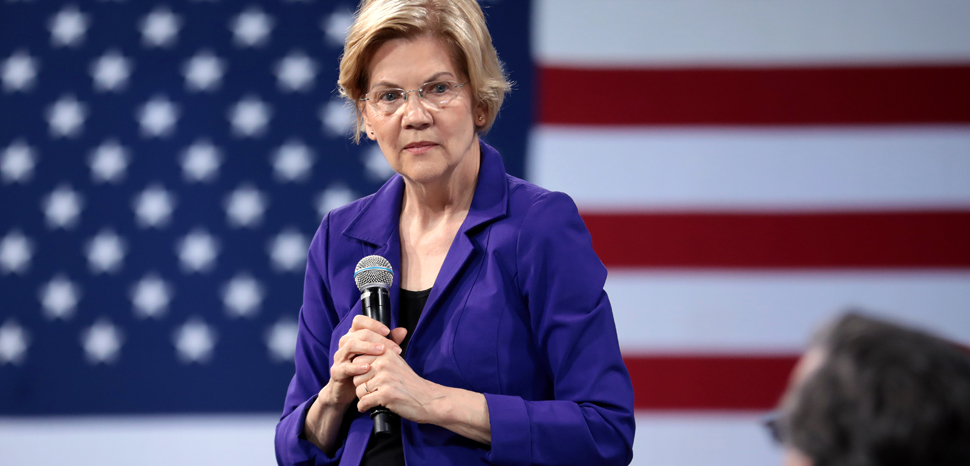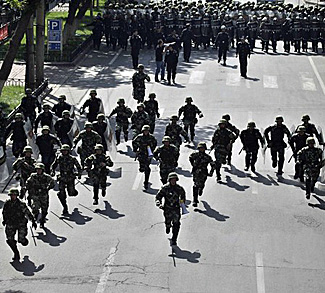Hillary Clinton, following her emotional loss in the 2008 Democratic primaries, proclaimed that “although we weren’t able to shatter that highest, hardest glass ceiling this time, thanks to you, it’s got about 18 million cracks in it.”
Both Clinton’s 2008 and 2016 concession speeches cited the notorious ‘glass ceiling’ that she was unable to break, a symbolic barrier preventing women and marginalized groups from obtaining higher professional positions. This year, an unprecedented number of women are running in the 2019 Democratic primaries, notably frontrunner Elizabeth Warren. Yet, the chances of electing a female president lay at around 22% – a bet that I would not lay my money on.
While Clinton asserted that “misogyny and sexism were contributing factors” in her defeat, her failure did not stem solely from androcentric prejudices against women. Instead, she lost because of the United States’ reliance on maintaining a chief-of-staff who espouses inherently masculine characteristics. The United States prides itself on its masculine nature, with the military representing the epitome of its manliness. Its violent, dominating, and protective intonations construct an integral part of the American national identity. Femininity, in contrast, depicts all that is undesirable to the American way of life, as it encompasses vulnerability, emotion, and risk. To avoid any reference to the implied weakness(es) feminine attributes encapsulate, the United States developed a dependence upon the military, and moreover, the masculine nature it exudes. The American military complex, due to its visceral fear of the feminine ‘other,’ seeks to control women to maintain its domination over those who threaten its purported masculinity. As a result, everything from elections, presidencies, and even a can of soup are militarized (see Enloe’s 2000 work Maneuvers: The International Politics of Militarizing Women’s Lives).
Elizabeth Warren’s bid for the Democratic candidacy is no exception to this militarization. The penetrating and overtly militaristic intonations of America’s militarized masculinity seek to control Warren’s campaign because of her divergence from the socially accepted norm of female subjugation. Thus, it is no surprise that Warren has struggled to obtain monetary support from donors in the Washington national security complex, mainly those working in the State Department and Department of Homeland Security. As of November 8, she had garnered a combined contribution of $85,300 from national security employees. Although it is a large sum, Warren’s donations are dwarfed by Bernie Sanders’ whopping $212,472 and Pete Buttigieg’s $152,570. With Warren above both Sanders and Buttigieg in recent polls, leading by 4 and 18 points respectively, her lack of military funding, contrasted to that of her less popular counterparts, is puzzling. Warren’s difficulty in amassing funding showcases the military’s perpetuation of gendered structures of oppression in the United States, which seek to control those that it deems a threat to its masculine being.
Some may contend that Warren did not receive a high magnitude of funding associated with the military because of her “leftist” stance that would result in the collapse of the military budget. Surprisingly, during many of her rallies and campaign speeches, Warren had eschewed from commenting on the defense budget. Instead, she advocated for the maintenance of a “strong military” that will “stand by our allies,” thus presenting no reason for security corporations to underfund her. While Buttigieg is a former serviceman who advocates for the continuation of America’s protective military presence abroad, Sanders detests the American war machine, calling for the removal of troops from the “never-ending” wars in the Middle East. Although Sanders’ platform endangers the military’s funding and its power abroad, national security employees perceive Warren’s campaign as a greater threat to the military because of her femininity and potential position of power as the Commander-in-Chief, which directly conflict with the military’s core masculine beliefs.
Although the United States now upholds the belief that it is a gender equal society, the military continues its historical suppression of women through nuanced mechanisms that penetrate the state and furthermore, elections. By regulating both funding and requiring those in elite positions to conform to masculine characteristics, the military maintains its male grasp over society, effectively impeding female politicians, such as Elizabeth Warren, from breaking the presidential glass ceiling.
The views expressed in this article belongs to the author alone and does not necessarily reflect those of any institutions with which the author is associated with or Geopoliticalmonitor.com.




